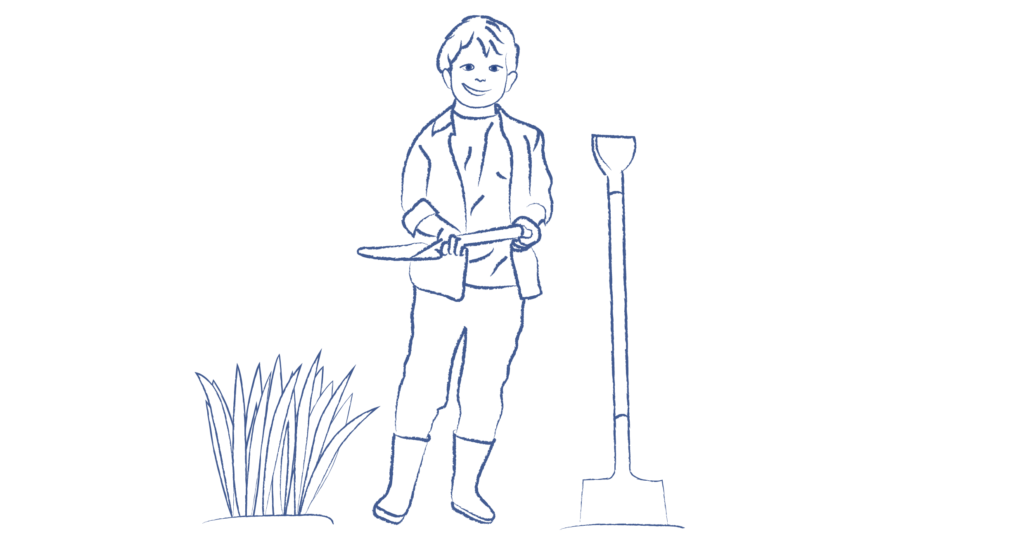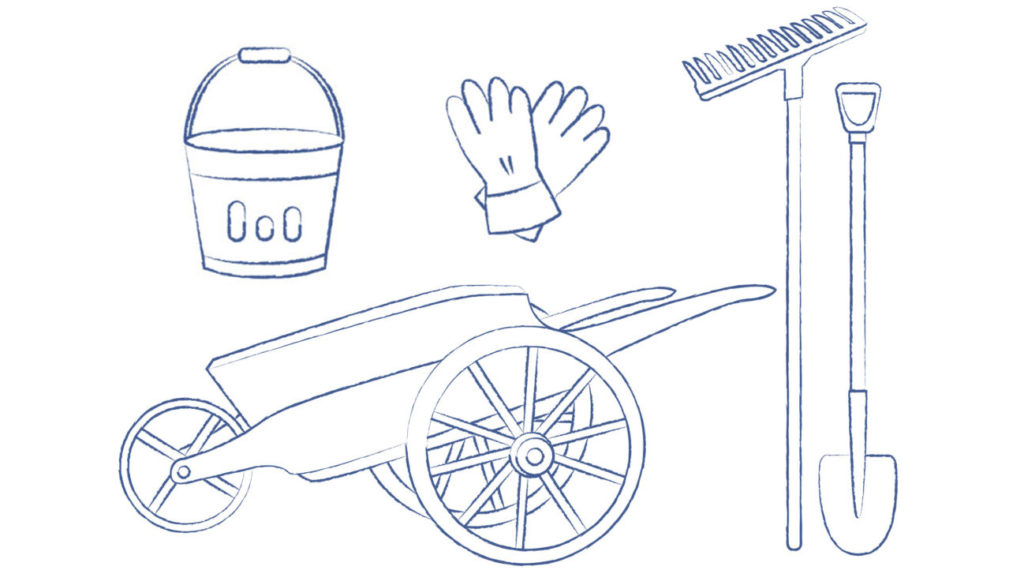At The Children’s House the garden is an essential part of our educational environment. It has been especially prepared to meet the needs of children in the first stage of development. Our garden is divided into two parts: there is a small enclosed garden attached to each class and then we have a larger garden with walkways and a variety of playground equipment, offering children a wider range of opportunities for movement and exploration.
The small enclosed garden offers children immediate, safe access to the outdoors at any time of day – a real luxury for children growing up in urban areas! They may choose to work outdoors at a table or on a floor mat with activities that they have brought outside from the classroom, or they may choose to carry out gardening activities and tend to the flowers, the plants and their vegetable patch. Children are given ample time to observe the tiniest of insects, they can discover worms and even watch birds feed from the bird feeder!
By providing organized outdoor activities such as raking leaves, tilling soil, planting seeds, we give children opportunities to experience the seasonal work of gardening and to see that we have to wait patiently for a seed to sprout, for shoots to appear then grow until the plant is ready to give us its fruit! Life outdoors offers a number of sensorial stimuli as children explore the various textures of the leaves, the scent of herbs and flowers, and all the natural colours and forms that nature offers so generously.
Nature has a calming effect on children – they will become keen observers, mindful of the well-being of plant and animal life. They will get their hands dirty, and their boots muddy. This contact with the earth will turn their attention to a world full of surprises, a world we must look after with an attitude of respect and wonder.
“The work which pleases children most is not so much that of sowing seeds as that of harvesting: work, as one knows, not less intense than the other. It is harvesting, one might say, which intensifies the interest in seed-sowing. Anyone who experiments with gathering in the crops will feel more keenly the hidden fascination of sowing.”
Maria Montessori, The Discovery of the Child (1948)

“When he knows that animals have need of him, that little plants will dry up if he does not water them, he binds together with a new thread of love today’s passing moments with those of the morrow.”
Maria Montessori, The Discovery of the Child (1948)

“Only the poets feel the fascination of a tiny rivulet of water trickling over the pebbles as it is felt by the child, who grows enthusiastic over it, laughs and wants to stop and touch it with his hand as if to caress it.”
Maria Montessori, The Discovery of the Child (1948)
